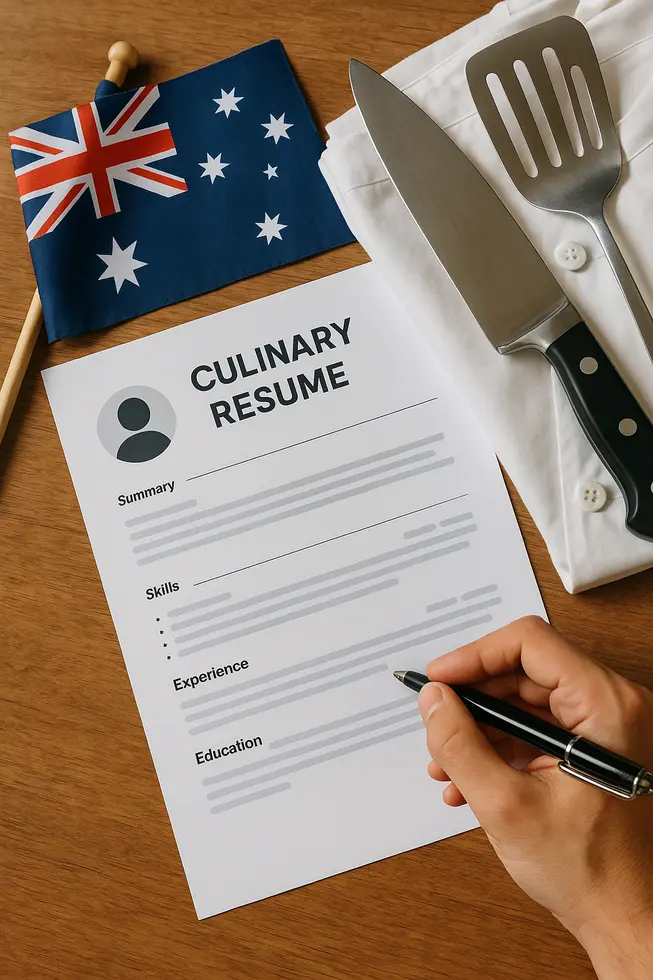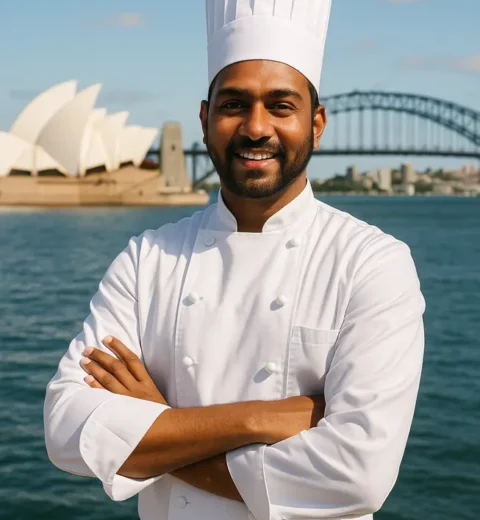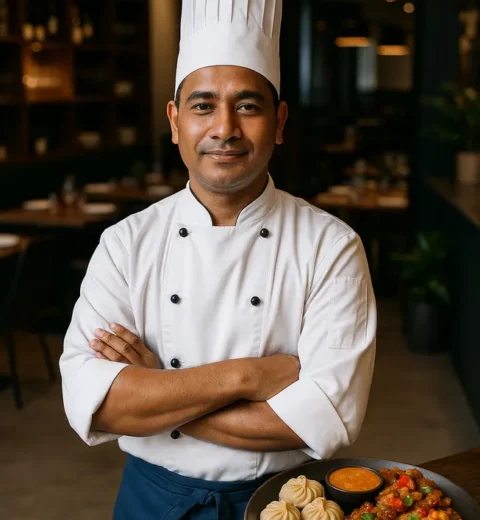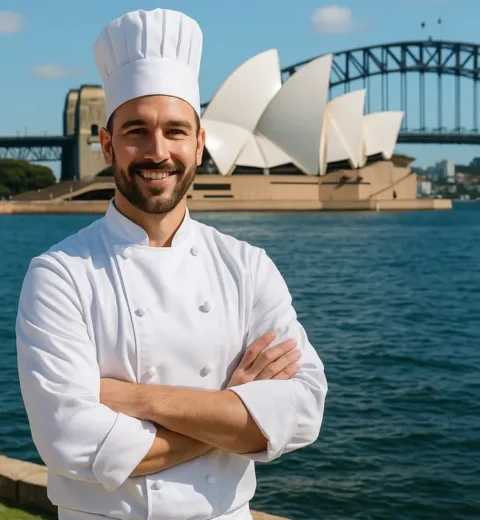Securing a position in Australia’s bustling hospitality sector requires more than just culinary talent—it demands a resume that effectively showcases skills, experiences, and achievements. Understanding the nuances of what Australian employers look for in a culinary resume can set you apart from the competition. This guide explores key elements to include, from crafting a compelling resume header to highlighting relevant work experience and educational credentials. Learn how to integrate volunteer experiences and optimize your resume for applicant tracking systems. Each topic offers specific strategies to enhance different sections of your resume, making it tailored for the dynamic Australian hospitality market.
Crafting a Stellar Resume Header for Hospitality Success
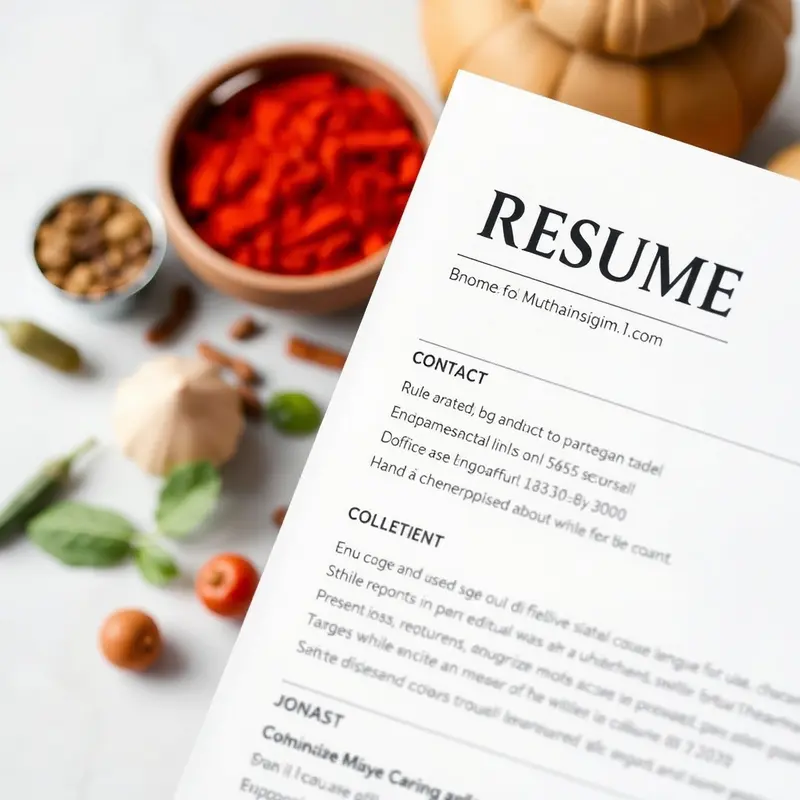
The resume header is the pivotal first impression for Australian hospitality jobs. It must captivate attention while maintaining professionalism. Start with your full name in bold, large font at the top; this ensures memorability. Next, feature your contact information, including an Australian mobile number formatted correctly with country code (+61). The email address should reflect professionalism, avoiding informal handles. Listing your city, such as Sydney, enhances geographical context when relevant. Enrich your header by connecting to the digital world through your LinkedIn profile or a portfolio if creatively applicable.
Avoid detailing age or birth date, adhering to anti-discrimination norms in Australia. Similarly, forgo photographs unless specifically requested. The focus should remain on a clean presentation—no distracting graphics or colors. Tailor your contact details for geographically specific roles. Customize for each application, demonstrating adaptability and a keen awareness of individual employer expectations. Ultimately, a well-crafted header paves the way to showcasing culinary talents and exciting prospects in hospitality.
Highlighting Essential Culinary Skills for Australian Hospitality Resumes

When crafting a culinary resume for the Australian hospitality sector, focusing on your key skills can make a significant impact. Culinary techniques are pivotal; detailing your expertise in methods like sous vide or pastry-making illustrates your hands-on abilities. Additionally, showcasing your versatility with food styles and cuisines, such as Asian or Mediterranean, can capture the interest of employers looking for adaptability in their kitchen environments.
Certifications, like food handling licenses, and awards bring credibility to your resume. Demonstrating experience in kitchen management through skills like inventory oversight or team leadership is invaluable, especially for senior roles. Moreover, even in back-of-the-house positions, customer service plays a role. Highlight your experience with guests and handling feedback, as this speaks to your communication and problem-solving skills.
In the broader scope of hospitality roles, skills such as technical proficiency, creativity, and teamwork for chefs; communication and multitasking for attendants; and beverage knowledge for bartenders are crucial. Tailoring your resume to include these skills not only aligns you with job requirements but also passes through applicant tracking systems efficiently, increasing your chances of securing interviews.
Mastering Culinary Work Experience for Australian Hospitality Success
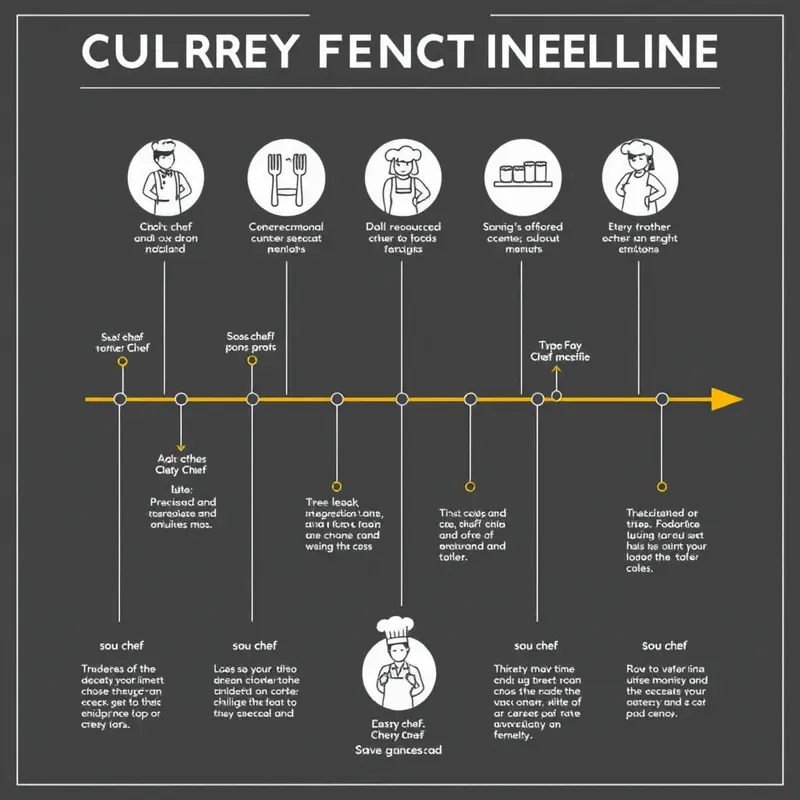
In crafting a compelling culinary resume for the Australian job market, showcasing your work experience effectively is paramount. Begin by emphasizing any relevant qualifications and certifications you possess, such as the highly regarded Certificate III and IV in Commercial Cookery. These credentials form the essential building blocks of your culinary expertise, showcasing proficiency in industry-required skills. Additionally, affiliations with local culinary associations can bolster your professional image.
When detailing your work experience, list roles in reverse chronological order, beginning with the most recent. Highlight your journey through diverse culinary environments such as restaurants, hotels, or catering services, underscoring your versatility. Leadership roles, like those of a sous chef or head chef, should be prominently showcased, especially as many positions prefer candidates with a minimum of 2 to 3 years’ experience.
Demonstrate your competencies by highlighting your culinary creativity, team management skills, and unwavering commitment to quality control. Effective communication abilities and adaptability in dynamic kitchen environments further illustrate your comprehensive skill set. Accentuate your achievements, whether in the form of culinary awards or innovative projects you’ve spearheaded, such as menu revamps or efficiency improvements. By meticulously presenting these experiences, you solidify your candidacy for top culinary roles in Australia’s hospitality industry.
Essential Culinary Qualifications for Australian Hospitality Success
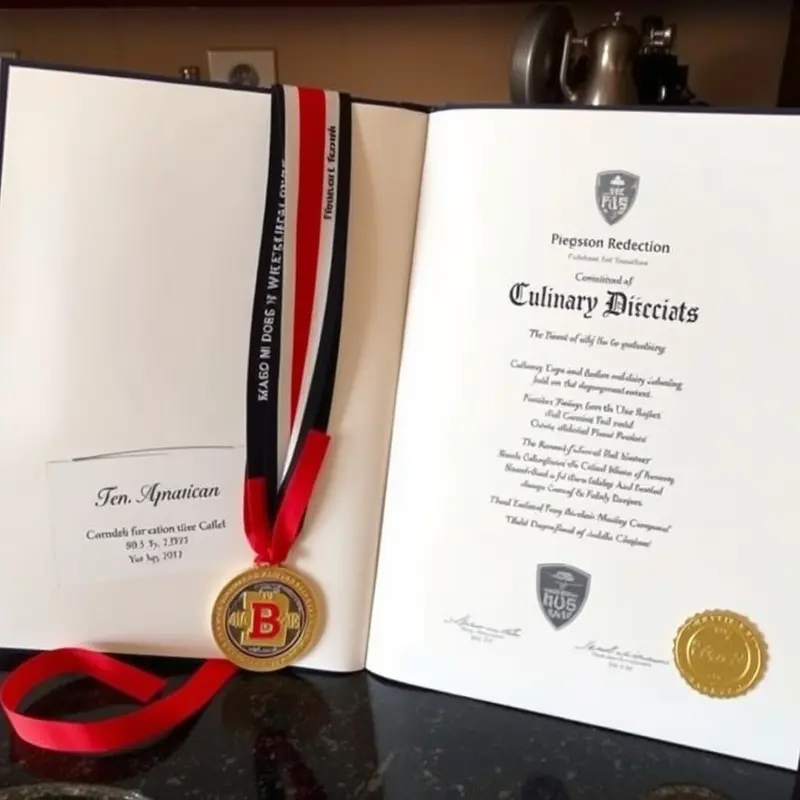
Highlighting the right educational background is pivotal when constructing a culinary resume for the Australian hospitality sector. Possessing a Certificate III in Commercial Cookery (SIT30821) opens doors to entry-level positions by providing a solid foundation in food preparation and safety. For those aspiring to pursue kitchen management, the Certificate IV in Commercial Cookery (Kitchen Management) (SIT40521) demands attention with its focus on advanced techniques and leadership. Meanwhile, a Diploma in Culinary Arts expands skill sets across international cuisine and management, offering essential insights into knife skills and culinary theory.
For those seeking to climb even higher, Bachelor’s or Master’s degrees deliver comprehensive knowledge across culinary arts and hospitality management, positioning candidates for senior roles. Beyond formal education, certifications in food safety and first aid are crucial in ensuring workplace compliance and safety. As Australian kitchens often seek multilingual capabilities, proficiency in English, coupled with additional language skills, could set candidates apart in multicultural settings.
Integrating practical experiences, such as apprenticeships and internships, further bolsters resumes, demonstrating hands-on expertise. By effectively articulating these qualifications, chefs and culinary professionals can significantly enhance their prospects within Australia’s vibrant hospitality arena.
Boost Your Culinary Resume with Volunteer Experiences in Australian Hospitality
Gaining experience in the hospitality sector through volunteering offers invaluable benefits, particularly for those looking to hone their culinary resume for Australian job opportunities. Volunteering enables you to acquire practical skills in roles like kitchen operations or customer service, thereby fortifying your hands-on experience. Additionally, it provides essential networking opportunities, connecting you with industry professionals who could open doors to future job prospects. Furthermore, it enhances personal development, boosting your confidence and fostering vital skills like teamwork and adaptability, which are crucial in fast-paced environments.
To uncover volunteer opportunities, platforms like Worldpackers, which offer work exchange for accommodation options, or general listings on SEEK Volunteer can lead to suitable hospitality roles such as cafe assistants or event volunteers. Embrace this chance not just to gain skills but to document specific examples of tasks and achievements you can effectively leverage in resumes and cover letters. Beyond skills, build relationships that could support your career journey, underscoring your proactive commitment to the culinary industry.
Creating an ATS-Optimized Culinary Resume for the Australian Hospitality Industry
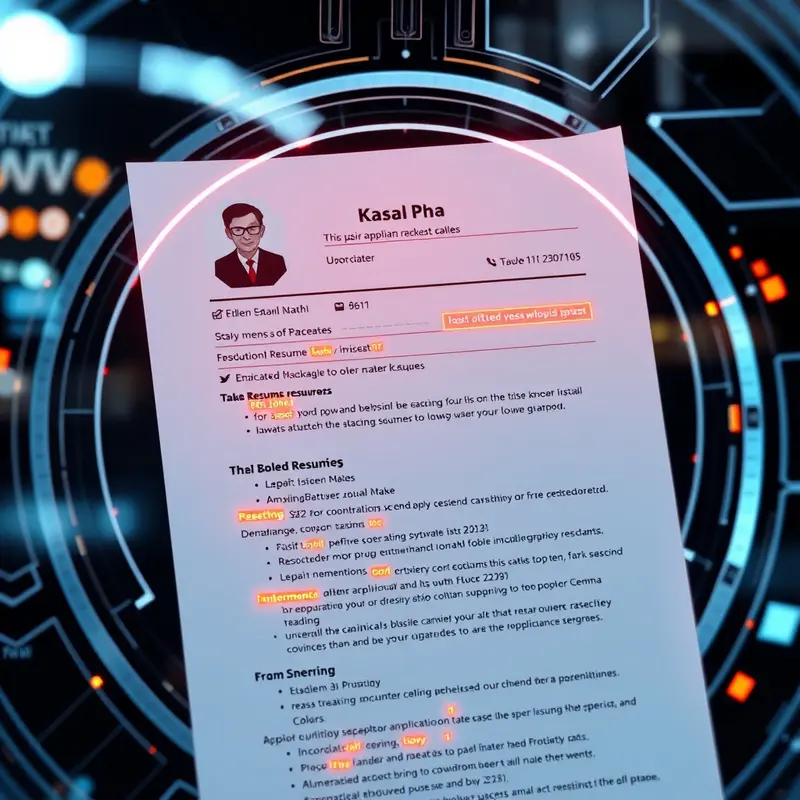
In an increasingly digitized job market, ensuring your culinary resume is optimized for Applicant Tracking Systems (ATS) is crucial for securing a position in the bustling Australian hospitality sector. The first step is using ATS-friendly templates. These templates avoid complex graphics and tables, which can disrupt ATS parsing, and instead use clear, simple layouts.
Keyword optimization is equally important. Analyze job descriptions to extract essential keywords like “menu planning,” “cooking techniques,” or “customer satisfaction.” These should be naturally woven into your professional summary and work experience sections.
An effective professional summary can act as a compelling introduction to your expertise, succinctly outlining your experience and achievements. For individuals transitioning into the culinary world, a well-crafted career objective highlighting relevant training can set the tone.
When detailing work experience, use reverse chronological order and prioritize measurable achievements with action verbs. This not only highlights your impact but aligns your resume with ATS markdown. Also, remember to format consistently, using standard fonts and file types preferred by ATS systems.
Employing ATS checker tools can give you an edge, ensuring your resume stands out to both automated systems and hiring managers alike.
Final thoughts
Creating a resume that resonates with Australian hospitality employers involves highlighting relevant skills, experiences, and educational achievements while ensuring ATS compatibility. By structuring your resume to feature a compelling header, targeted skills, and strategic work history, you’re better positioned to secure a role in this competitive industry.
Remember, showcasing volunteer work and other unique experiences can further enhance your profile. By optimizing each component and aligning your resume with industry standards, you increase your visibility and appeal to potential employers.
Ready to advance your culinary career in Australia? Contact Us to explore exciting opportunities and tailor your application for success.
Learn more: https://jobsrecruiter.com.au/contact-us
About us
At Jobs Recruiter Australia, we specialize in connecting talented culinary professionals with leading hospitality employers across the nation. Our expertise in the industry helps streamline your job search process, offering tailored guidance to enhance your resume and increase your chances of success. Take the next step towards a fulfilling culinary career with us.
